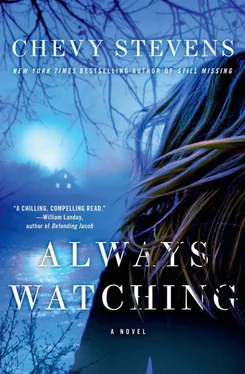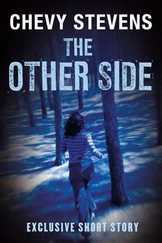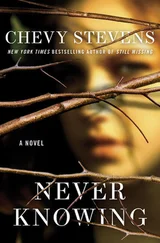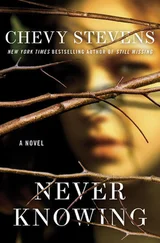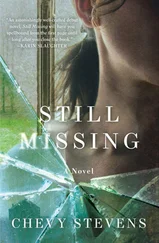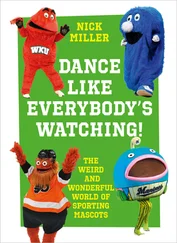* * *
That evening I spent a lot of time thinking about my life—and how it had also nearly ended. Then I made some decisions. I arrived early to visit Robbie the next day, and after he fell back asleep, I made my way upstairs to Kevin’s office.
At my knock, his voice rang out, “Come in.”
I hesitated. Would he want anything to do with me after I’d been so aloof? I’d never know unless I tried. I took a breath and opened the door.
He looked up in surprise, started to stand. “Nadine…”
I motioned for him to stay seated and took the chair across from him.
I met his gaze, thinking how handsome he looked as he brushed his hair back with one hand, his forearm muscles flexing. I said, “I owe you an apology.”
He cocked his head, a small smile playing about his lips. “You’re just figuring this out?”
“I’m a bit slow sometimes.” I stepped out on the edge of my emotions, stood teetering for a moment, jumped. “You’re right. I have been running away. I guess I’m scared… of this, of what it could mean.”
“I’m scared too. That’s a good thing. I like the way you make me feel.”
We held gazes again, a slow thrum of nervous excitement hitting right below my heart. But there was something I had to make clear.
“My daughter, Lisa. She’s still in the commune, and she’s my number one priority right now—and forever.”
He nodded. “Of course.”
“That being said, if you’d like to spend some time together, I could use a friend.”
He raised his brows. “A friend?”
“A friendly friend. I’d like to see where this could go.” I raised my own brow, pleased to see his answering smile. “We could start by having dinner again?”
“I’d like that.”
“Maybe I’ll even audition for your band. I play a mean tambourine.”
“Let’s not get carried away now.”
We both laughed, then he reached across the desk and held my hand.
This time there were no flashes of images, no guilt about Paul. But I remembered, when Paul was alive, how he’d try to steal moments like this at the clinic, catching my hand as I sped by, but I’d pull away, intent on my task.
Death makes you wish you’d done everything differently, had been in less of a hurry. This time I would enjoy the journey.
Life is for the living.
I’d just gotten home from the hospital and was unlocking my door when a police car pulled in my driveway. A tall man, with gray hair, dark eyebrows, and a deeply lined face that made him look tired, got out and introduced himself as Sergeant Pallan. He then told me he was handling the commune investigation. His eyes were serious and sad when he took off his sunglasses. I searched his face, my breath increasing, my chest tight, sensing that he wasn’t there to ask me questions.
“What’s wrong?”
“We need to talk, and I think we should go inside.”
It was bad. Whatever he wanted to tell me was really bad. The world distorted. My depth perception off, I stumbled on the doorsill as I led him into the house. Please, don’t let it be Lisa. Don’t let her be dead.
I made my way to the kitchen table, pulled a chair out, and eased my body down. I put my elbows on the wooden surface and rested my mouth against my fists, pressing my lips into them, trying to stop the scream building there. I was aware that my legs and hands were shaking, but peripherally, like a doctor assessing my condition. Shock, you’re going into shock. I was already a stranger to myself.
I searched for words, made them come out my mouth. “What happened?”
“Early this morning there was a fire at the commune and—”
“My daughter?”
“We don’t know….”
I started to moan into my hands, a low, keening sound. Shock cocooned my body, everything slowing down.
The officer said, “I can call someone for you.”
“Tell me what happened.”
“It might be better if you had a friend—”
“Tell me.” I bit out the words, anger and tears mixing on my face.
So he did.
* * *
There were only a handful of survivors. Two members had escaped through a broken window—one, a female staff member, was in the hospital with a bullet wound, the other was suffering from third-degree burns. The man who took care of the grounds had been down at the far end of the property mowing the lawn, so he’d also been spared. Another surviving member had been coming back from a horseback ride and was still in the distance when Joseph pulled up. She continued to the barn and began to take off her horse’s saddle. There was silence for a while, and then gunshots.
Terrified, the girl had hidden in one of the stalls, with no way to call for help. She’d been watching the building with horror when she heard a loud whoosh and saw flames shoot out of the windows, quickly consuming the wood siding.
A few moments later, there was an explosion, and every building was engulfed in flames. The girl had released all the animals, then hid in the field until the police and fire trucks arrived.
It took them hours to put the fire out. At least one hundred and fifty people had died, twenty-five of them children. There might have been even more casualties but there hadn’t been any workshops or retreats running at the time.
The members who died had all been locked into the meditation room, herded like sheep for a slaughter. Joy was the surviving member who’d been shot. She’d helped Joseph gather everyone, but when Joseph grabbed her keys and locked them all inside, then said he needed gasoline, she realized something was wrong. She’d tried to stop him, but he’d shot her and left her in the hallway. She’d crawled to her office and barely made it out the window before the gasoline had ignited some chemicals kept in the storeroom and triggered the explosion.
The police didn’t know what happened to Joseph and whether he was still on the loose. It was going to take months for them to identify the bodies. Joy had tried to list all the members that she knew for sure were in the meditation room, but Lisa wasn’t one of them. Joy couldn’t remember seeing her at all that morning or in the previous two days; nor could the other survivors. She was missing.
I kept staring at the officer, watching his mouth move as he explained that there were resources available to me, but nothing was connecting.
I put my head down on the table and sobbed.
* * *
The days after the fire were a haze of jumbled images and memories. There were moments where I’d be standing in my kitchen, staring at my hand clutching the soapy sponge, trying to understand. How could Joseph have killed all those people? How could I be washing dishes and doing laundry when my daughter was still missing? I knew grief would shield you from the worst and leak the pain out in small doses, but I remember thinking, No, this is as bad as it can get, surely it can’t hurt more than this . But it could, and it did.
Most days I’d walk slowly around my house, feeling as though my entire body was beaten and bruised, trying to accomplish simple tasks. I’d break it down into moments: put on slippers, pull on housecoat, brush teeth. Then I’d stare at the woman in the mirror, and grief would spill out of my mouth in strangling gasps.
I’d dealt with death before, understood its process. But the loss of so many, combined with the agony of waiting to hear if Lisa was one of the victims, was something I never could’ve prepared for. And I cried for all of them.
Sergeant Pallan endured my frantic late-night calls when I asked him again if they’d searched everywhere for Lisa. Could she be in the basement or one of the chambers, I’d say. But he’d always tell me that she was still missing, then he’d gently add that it would take a while to identify all the victims—many of the bodies had been badly damaged in the explosion. But I couldn’t accept that her body was also in the morgue, not until I had proof. I’d speculate in an endless loop of possibilities: She’d left the center before the fire, or she’d witnessed the event and was now hiding somewhere, fearing for her life.
Читать дальше
